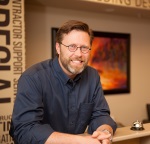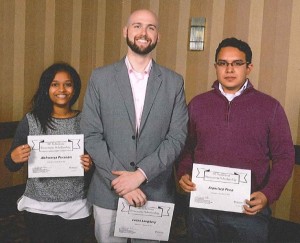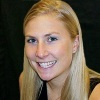by Jenny Schultz
Are you confident in your familiarity with the finite element software your office uses to design masonry building components? Do you know what the program design defaults are within your software and how to make changes when necessary? With software programs being frequently updated, it is important to stay up-to-date on the changes and features available to any programs you routinely use, and be informed of what is available in other programs on the market.
In May 2016, Sam Rubenzer, PE, SE, with FORSE Consulting, gave a presentation on Masonry Analysis and Design with FEA Software for SE University. While Sam’s entire presentation gave great insight into the utilization of FEA software to gain a greater understanding of the behavior of masonry building elements, he also specifically addressed the capabilities of various commercial software programs typically used by structural engineers to design masonry walls. Each program uses different features to help design engineers accurately model masonry elements, and while these features are continually being updated and changed, Sam’s overview shows what is currently available. Although not intended to be an all-inclusive review of each software program, Sam does point out key features that are useful specifically in masonry wall elements.
Typically, it is important to know how to modify the stiffness of masonry wall elements, and where the programs allow the engineer to make changes for cracked or uncracked walls. Horizontal or torsional bending may need to be considered in some masonry walls. Also, the ability to modify element connection releases is important, as well as the program’s ability to perform wall optimization or consider partial grouting. In the following 6 minute video, Sam demonstrates many of these topics and their applications in each of the following programs:
- RISA 3D
- SCIA Engineer
- TEKLA Structural Designer
- Ram Structural System
24 May 2016
“SEU Speaker Inspires” Organization of the Month: NC State Department of Civil Engineering
In an effort to “Pay It Forward,” SE University is happy to announce our “SEU Speaker Inspires” program in which our speakers can designate a charity/organization of their choice for SE University to make a donation to help improve our world.

Otto J. Schwarz, P.E., S.E.
Ryan Biggs | Clark Davis
In April 2016, Otto J. Schwarz, P.E., S.E., from Ryan Biggs | Clark Davis gave a talk on Evaluation and Repair of Precast and Post-Tensioned Concrete Parking Structures for SE University. He chose the North Carolina State University Department of Civil Engineering (www.ce.ncsu.edu) for the donation of the month, as he received a great deal from this program in pursuit of his master’s degree.
In remembering his time spent in the NC State Department of Civil Engineering, Otto recalled, “The type of experience provided at their Constructed Facilities Laboratory is extremely valuable for young engineers pursuing a career in Structural Engineering or materials science. Also, I owe an immense amount to Dr. Mike Lemming for providing an in-depth, practical, and functional knowledge of concrete chemistry and physical properties.”
Thank you, Otto, for helping structural engineers with your SE University session, and for your designation of the North Carolina State University Department of Civil Engineering as our SEU Speaker Inspires Organization of the Month!
by Jenny Schultz
Do you know what contributes most to the lifespan deterioration of precast concrete parking structures? Are you able to identify the culprit behind cracking throughout your parking structure rehabilitation projects? Preventing and remediating cracks within parking structures requires a thorough understanding of the different ways in which concrete sections respond not only to gravity loads, but also to the unique environmental loads that affect these types of structures.
In the April 2016 SE University session, Evaluation and Repair of Precast and Post-Tensioned Concrete Parking Structures, Otto J. Schwarz, PE, SE, from Ryan Biggs | Clark Davis, presented an overview of typical cracking in concrete parking structures and some guidelines to help correlate the locations and root cause of these cracks. The following 3 minute video clip includes more information about these common failures in concrete parking structures.
01 May 2016
“SEU Speaker Inspires” Organization of the Month: Stuart Scott Memorial Cancer Research Fund
In an effort to “Pay It Forward,” SE University is happy to announce our “SEU Speaker Inspires” program in which our speakers can designate a charity/organization of their choice for SE University to make a donation to help improve our world.

Aldo E. McKay, PE
Protection Engineering Consultants
In March 2016, Aldo E. McKay, PE, from Protection Engineering Consultants gave a talk on Implementation of the ISC Physical Security Design Requirements for Federal Buildings for SE University. He chose the Stuart Scott Memorial Cancer Research Fund (www.jimmyv.org/stuartscott) for the donation of the month. This fund is a part of the Jimmy V Foundation but focuses on cancer research for minority groups.
Aldo said the following about the Stuart Scott Memorial Cancer Research Fund, “I have been touched by cancer like many people. As an engineer, I have seen how research helps us improve the way we design, analyze and build infrastructure. I truly believe that with our current technology, it is just a matter of time before a cure for cancer can be found. If we support cancer researchers, it will expedite the process of taking the cure from test tubes to patients more quickly.”
Thank you, Aldo, for helping structural engineers with your SE University session, and for your designation of the Stuart Scott Memorial Cancer Research Fund as our SEU Speaker Inspires Organization of the Month!
To read the full article with more details on the suggestions, please click here.
I highly recommend subscribing to Craig’s blog (there is no cost) and he has some great suggestions.
23 Mar 2016
“SEU Speaker Inspires” Organization of the Month: UCSD Structural Engineering Scholarship Fund
In an effort to “Pay It Forward,” SE University is happy to announce our “SEU Speaker Inspires” program in which our speakers can designate a charity/organization of their choice for SE University to make a donation to help improve our world.

Dave K. Adams
BWE
In February 2016, Dave K. Adams, SE, from BWE gave a talk on Ethics for Structural Engineers: Lessons in Negligence and Incompetence for SE University. He chose the University of California, San Diego (UCSD) Structural Engineering Scholarship Fund (https://giveto.ucsd.edu/ – giving option 2337), for the donation of the month. This fund assists undergraduate students studying structural engineering in the Jacobs School of Engineering.
Dave chose UCSD for his SEU Speaker Inspires donation because he would like to help make it possible for more students to attend UCSD and study structural engineering.
Thank you, Dave, for helping structural engineers with your SE University session, and for your designation of the UCSD Structural Engineering Scholarship Fund as our SEU Speaker Inspires Organization of the Month!
In an effort to “Pay It Forward,” SE University is happy to announce our “SEU Speaker Inspires” program in which our speakers can designate a charity/organization of their choice for SE University to make a donation to help improve our world.
In November 2015, Emily Guglielmo, SE, from Martin/Martin, Inc., gave a talk on Clarifying Frequently Misunderstood Seismic Provisions for SE University. She chose the UCLA Civil Engineering Department (www.cee.ucla.edu), where she earned her Bachelor’s Degree in Civil Engineering, for the donation of the month.
Emily said the following about UCLA Civil and Environmental Engineering, “UCLA CEE gave me an excellent background in civil engineering and a launching pad to specializing in structures. The professors were excellent mentors who helped guide me through college and into the field of engineering.”
Thank you, Emily, for helping structural engineers with your SE University session, and for your designation of the UCLA Civil Engineering Department as our SEU Speaker Inspires Organization of the Month!
29 Feb 2016
Resource for Creating a “Life Plan”
“Question: What steps will you take this week toward creating a more intentional life?”
This question was asked recently in a podcast + article I saw titled “Why you Need a Life Plan Now. A Proven Way to Avoid Wasting Your Life.”
I found several helpful tips in the podcast. To access the podcast, please click here.
03 Feb 2016
7 Tips to Motivate Your Team
by Cathleen Jacinto, SE, PE
How can an engineering office ensure it is a place where its employees love what they do?
Those who have chosen to be structural engineers, as with many other professions, are inspired. They persevere through academia and licensure examinations for a reason. Many times, they have a passion to contribute to the built environment.
Do your engineers currently still feel the same amount of inspiration and perseverance that they did when they first began their careers? Are they still doing the work they love? If not, when did you notice a shift? The Ted talk discussed in last month’s newsletter titled “How to Find Work You Love” by Scott Dinsmore was a great reminder to check in and ask these questions. If the answer to any of the above questions was no, how can we cultivate the inspiration and motivation that was likely inherent in many of us at the beginning of our careers?
Below are a few potential ideas to ‘jumpstart’ motivation and positive morale in an engineering office. While some may require a financial investment, some are very simple to implement without any cost.
- “Which projects do you want to work on?” Believe it or not, many engineers are not asked this question. Remember that we do what we do because we are inspired. Listen to what inspires your team members, and you may be surprised by how well they do in what they love to do.
- Does each employee have adequate resources to do their job? If you hold an engineer accountable for a role, do they have the means and appropriate authority to execute? For example, if they are expected to manage a project, do they participate in staffing and budget decisions as needed to fulfill their role?
- Regular team meetings: Clear communication regarding workload, tasks, and timelines should be transparent within a team. Effective weekly meetings are a great platform to confirm project delivery and to foster input from team members in making sound decisions.
- Complete execution of employee annual reviews: An honest conversation between an employer and employee, and follow-through on the talking points are essential. It is best to be in constant open communication throughout the year, but with busy schedules or different personality traits, this may not always occur. The annual review is the set time when employees and employers speak openly and constructively. Both parties taking action on agreed plans is equally as important in developing a clear career path.
- Celebrate as goals are achieved: Recognition and the power of ‘thank you’ is highly motivating and creates mutual respect within a team. Timing is also key. It should be a priority to show appreciation to team members immediately after a deadline where individuals have gone above and beyond.
- Mentor programs: Mentoring is an effective way to switch interpersonal relationships from possibly non-communicative to teaching and fostering. One way this can be done is to pair a senior engineer with a younger engineer where they are able to meet for work lunches. Is there an engineer who has inspired you? Do you seek to be that person for another?
- Offer opportunities for additional learning: Provide a variety of ways for staff to continually learn as a structural engineer, even if the learning is in areas outside of your typical project types. This can lead to a boost in morale as engineers know that their companies are investing in them. There are a wide variety of learning opportunities readily available to structural engineers.
We hope that the ideas presented above provide some ways to motivate your team, and make a difference in your office.
“Don’t judge each day by the harvest you reap, but by the seeds you plant.”- Robert Louis Stevenson
We would love to hear of ways your office has been able to make positive strides!
30 Jan 2016
SE Solutions Provides Scholarships to 3 Structures Students from Purdue University (2015)
SE Solutions was pleased to recently present scholarships to three Purdue Structures students to help defray the cost of their education. Aishwarya Puranam, Lucas Laughery and Francisco Pena were the recipients of the awards. This is the fourth year that SE Solutions has offered the scholarships.

Purdue University SE Solutions Structures Scholarship Winners (l to r): Aishwarya Puranam, Lucas Laughery,
and Francisco Pena
Aishwarya Puranam, an International student from Hyderabad, India, received her BSCE from Purdue University, and she will be finishing her MSCE this May (2016). She plans to continue on towards a PhD; her graduate research is on reinforcement limits in reinforced concrete flexural elements such as slabs, beams, and walls with regular and high-strength steel reinforcement.
Lucas Laughery received his BS degrees in civil engineering and architectural engineering from Missouri S&T in 2012. In 2013 he earned his MSCE from Purdue University with an emphasis on structural engineering. His doctoral thesis focuses on the seismic response of reinforced concrete (RC) frames containing high-strength longitudinal steel. For this, he conducted 20 tests of RC frames on an earthquake simulator. Lucas will finish his PhD this spring or summer.
Francisco Pena received his BSCE from Universidad del Valle at Cali-Colombia. He finished his MSCE last August (2015) with a 3.9 GPA at Purdue. He currently is working on a doctoral thesis related to developing a fragility analysis of structures subjected to ground motions in a rapid manner using limited computational resources.
Francisco was motivated to focus his study on mitigating and recovering structures from the damage caused by natural hazards because around 85% of the population of Colombia lives in areas of intermediate to high seismic risk. For this reason, he has been involved in the study of different alternatives for the rehabilitation of structures. Francisco plans to return to Colombia as soon as he finishes with his PhD, since this study has been funded by his government.


